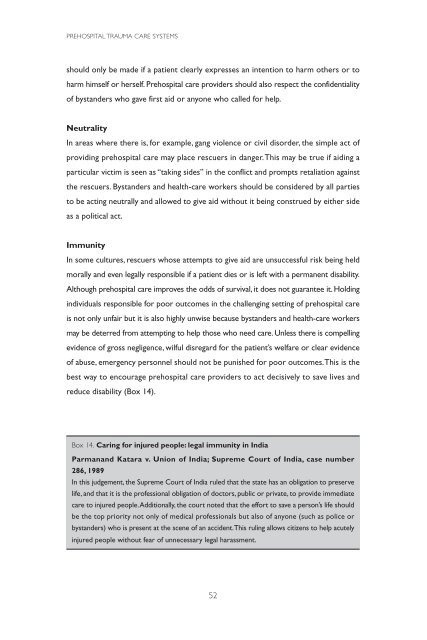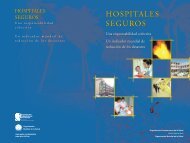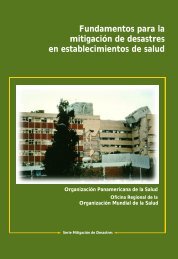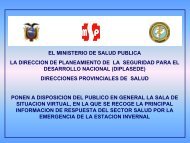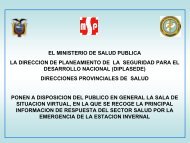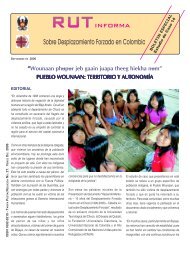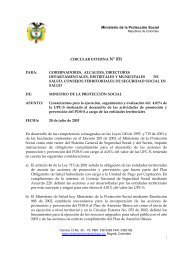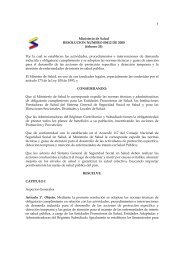Prehospital trauma care systems - World Health Organization
Prehospital trauma care systems - World Health Organization
Prehospital trauma care systems - World Health Organization
You also want an ePaper? Increase the reach of your titles
YUMPU automatically turns print PDFs into web optimized ePapers that Google loves.
PREHOSPITAL TRAUMA CARE SYSTEMS<br />
should only be made if a patient clearly expresses an intention to harm others or to<br />
harm himself or herself. <strong>Prehospital</strong> <strong>care</strong> providers should also respect the confidentiality<br />
of bystanders who gave first aid or anyone who called for help.<br />
Neutrality<br />
In areas where there is, for example, gang violence or civil disorder, the simple act of<br />
providing prehospital <strong>care</strong> may place rescuers in danger.This may be true if aiding a<br />
particular victim is seen as “taking sides” in the conflict and prompts retaliation against<br />
the rescuers. Bystanders and health-<strong>care</strong> workers should be considered by all parties<br />
to be acting neutrally and allowed to give aid without it being construed by either side<br />
as a political act.<br />
Immunity<br />
In some cultures, rescuers whose attempts to give aid are unsuccessful risk being held<br />
morally and even legally responsible if a patient dies or is left with a permanent disability.<br />
Although prehospital <strong>care</strong> improves the odds of survival, it does not guarantee it. Holding<br />
individuals responsible for poor outcomes in the challenging setting of prehospital <strong>care</strong><br />
is not only unfair but it is also highly unwise because bystanders and health-<strong>care</strong> workers<br />
may be deterred from attempting to help those who need <strong>care</strong>. Unless there is compelling<br />
evidence of gross negligence, wilful disregard for the patient’s welfare or clear evidence<br />
of abuse, emergency personnel should not be punished for poor outcomes.This is the<br />
best way to encourage prehospital <strong>care</strong> providers to act decisively to save lives and<br />
reduce disability (Box 14).<br />
Box 14. Caring for injured people: legal immunity in India<br />
Parmanand Katara v. Union of India; Supreme Court of India, case number<br />
286, 1989<br />
In this judgement, the Supreme Court of India ruled that the state has an obligation to preserve<br />
life, and that it is the professional obligation of doctors, public or private, to provide immediate<br />
<strong>care</strong> to injured people.Additionally, the court noted that the effort to save a person’s life should<br />
be the top priority not only of medical professionals but also of anyone (such as police or<br />
bystanders) who is present at the scene of an accident.This ruling allows citizens to help acutely<br />
injured people without fear of unnecessary legal harassment.<br />
52


